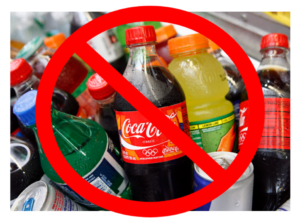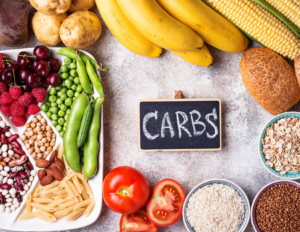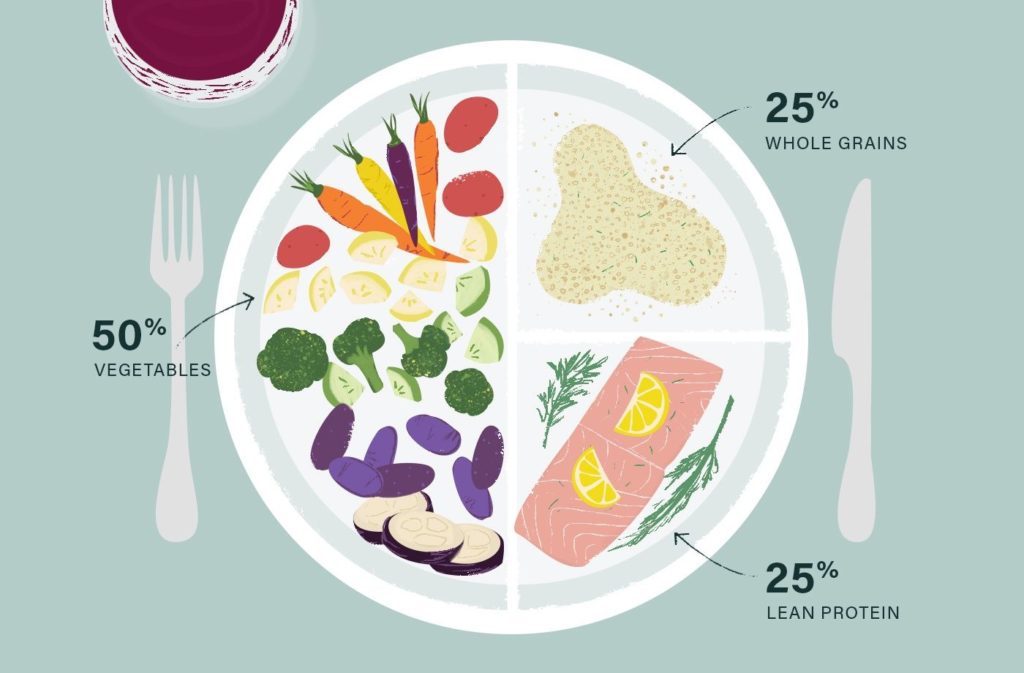By Samantha McCarthy, MS, RD/LDN
Fall is now upon us. The harsh summer sun and long days of hard labor have passed. While physical activity is still a part of the daily job, it may not be as intense or strenuous as the days of spring. Eventually, winter will arrive again, and activity levels will drop significantly. It is now a good time to start changing your eating habits to reflect the change in activity.
Back in May, we discussed the importance of nutrition to support high activity levels, maintain energy, and also decrease inflammation in the body. Now, the focus is shifting from high-performance nutrition to preventing weight gain during the Fall and Winter months. This requires a shift in eating habits from making sure you get enough calories, carbs, and nutrients to eating less of these.
 During the offseason, the first thing you want to do is set a goal. Are you looking to maintain your weight? Lose weight? Focus on recovery? Establishing a goal is important. It gives you something to work towards. Without a goal, you could easily veer off and, by the end of the winter, realize you have put on some serious weight. Once you have a goal established, create a plan on how you will reach that goal. Be specific when creating your goals and plan. A simple goal of weight loss is an excellent place to start, but define what weight loss means to you. How many pounds or inches? When developing your plan, simply eating better and exercising more is not specific enough. What does eating better mean to you? How many times a week do you need to exercise? Take the time to brainstorm as it will help you be more successful.
During the offseason, the first thing you want to do is set a goal. Are you looking to maintain your weight? Lose weight? Focus on recovery? Establishing a goal is important. It gives you something to work towards. Without a goal, you could easily veer off and, by the end of the winter, realize you have put on some serious weight. Once you have a goal established, create a plan on how you will reach that goal. Be specific when creating your goals and plan. A simple goal of weight loss is an excellent place to start, but define what weight loss means to you. How many pounds or inches? When developing your plan, simply eating better and exercising more is not specific enough. What does eating better mean to you? How many times a week do you need to exercise? Take the time to brainstorm as it will help you be more successful.
When creating your goals and plan, follow the tips below:
Incorporate Lean Protein at Every Meal and Snack
Whether your goal is to lose or maintain weight, lean protein is essential at every meal and snack. This will help minimize hunger levels between meals, maintain and build lean muscle mass, and provide essential nutrients that you need to recover and refuel. Choose your proteins wisely. Lean proteins include chicken, turkey, seafood, eggs, low-fat dairy products, soy products, nuts, beans, seeds, and other legumes. Proteins such as red meat, processed meats (sausage, hot dogs, bacon, deli meats, pepperoni, etc.), and fried meats are not ideal. These contain high amounts of saturated fat, a type of fat we should minimize in our diets. They are also high in calories so that, excess consumption could lead to weight gain.
Eat Frequently
Try to eat every 3-4 hours throughout the day to help with hunger levels. Avoid getting to the point where you are starving, which can lead to overeating, binge eating, and choosing the wrong foods. Start your day with a balanced, hearty breakfast to give you plenty of energy. This can lead to healthier choices throughout the day and less overeating.
Avoid Sugary Beverages
 While sports drinks and juice are appropriate on a hot, long day at work, they are not necessary during the offseason. They add extra calories and sugar our bodies do not need. Excess consumption of sugary beverages like soda, juice, energy drinks, sports drinks, and coffee drinks not only leads to weight gain but could also put you at risk of developing diabetes and obesity. Try to avoid these types of beverages. Stick with mostly water or unsweetened beverages like seltzer water, tea, and black coffee.
While sports drinks and juice are appropriate on a hot, long day at work, they are not necessary during the offseason. They add extra calories and sugar our bodies do not need. Excess consumption of sugary beverages like soda, juice, energy drinks, sports drinks, and coffee drinks not only leads to weight gain but could also put you at risk of developing diabetes and obesity. Try to avoid these types of beverages. Stick with mostly water or unsweetened beverages like seltzer water, tea, and black coffee.
Reduce Carbohydrate Intake
 During the peak season of Spring and Summer, activity levels are high, warranting a need to increase carbohydrate intake. As activity decreases, carbohydrate intake should also decrease. Most of your carbohydrate intake should come from sources like fruit, dairy, starchy vegetables (such as squash, sweet potatoes, peas) and small portions of whole grains. Limit portions to less than a cup at a time or the equivalent of one slice of bread.
During the peak season of Spring and Summer, activity levels are high, warranting a need to increase carbohydrate intake. As activity decreases, carbohydrate intake should also decrease. Most of your carbohydrate intake should come from sources like fruit, dairy, starchy vegetables (such as squash, sweet potatoes, peas) and small portions of whole grains. Limit portions to less than a cup at a time or the equivalent of one slice of bread.
Limit High Calorie, Empty Nutrient Foods
Processed, convenient snacks are your worst enemy during the off-season. These foods pack in loads of calories and are easy to overconsume. It’s an easy way to gain weight during the winter months. Try to limit these foods as much as possible. Also, be mindful of other high-calorie extras like dressings, sauces, and other condiments. Many people don’t notice these additions to foods, but they can easily add extra calories, saturated fat, and sugar.
Make Half Your Plate Vegetables, Half Protein and Starch
 The typical American plate is mostly starch, like pasta, rice, potatoes, or bread paired with an oversized piece of meat. To get the most nutrients and cut back on calories, build your meal or plate so half is made up of some type of vegetable or salad. Make one-fourth of your meal a lean protein source and the other fourth a starchy vegetable or whole grain. If you do this at every meal, it is much easier to maintain and lose weight.
The typical American plate is mostly starch, like pasta, rice, potatoes, or bread paired with an oversized piece of meat. To get the most nutrients and cut back on calories, build your meal or plate so half is made up of some type of vegetable or salad. Make one-fourth of your meal a lean protein source and the other fourth a starchy vegetable or whole grain. If you do this at every meal, it is much easier to maintain and lose weight.
Lastly, the offseason is a great time to work on building new habits. You may have more time and less stress during the next few months allowing you to focus on improving your health. Take advantage. Get in the habit of meal planning and prepping each week, cooking more at home, eating out less, improving your sleep habits, or any other goal you want to achieve. If you start to develop better habits now, when the busy Spring and Summer arrive again, it’s much easier to continue those habits.
The Fall and Winter months are a great time to improve your health and habits. Set some realistic goals, develop a plan, and adjust your eating habits to reflect a change in activity. Working on your health during the next few months will make you stronger and more prepared for another busy season next Spring.
About the Author
 Samantha McCarthy has worked in the nutrition and fitness field for over ten years. She works at Cedardale Health and Fitness in Haverhill, MA, as the Director of Wellness and Group Exercise. She counsels a broad range of clients, specializing in weight loss, chronic disease prevention and management, and sports nutrition. Sam has a passion for helping others reach their health and wellness goals. She has a comprehensive approach to health, incorporating nutrition, exercise, stress management, and behavior change into her counseling.
Samantha McCarthy has worked in the nutrition and fitness field for over ten years. She works at Cedardale Health and Fitness in Haverhill, MA, as the Director of Wellness and Group Exercise. She counsels a broad range of clients, specializing in weight loss, chronic disease prevention and management, and sports nutrition. Sam has a passion for helping others reach their health and wellness goals. She has a comprehensive approach to health, incorporating nutrition, exercise, stress management, and behavior change into her counseling.
Sam received her bachelor’s degree in Nutritional Sciences from the University of Connecticut with a minor in nutrition for exercise and sport. While working in Boston as a dietitian and fitness professional, she received her master’s degree in nutrition and health promotion from Simmons College. In her free time, Sam enjoys cooking, gardening, reading, and spending time outdoors.
Contact Information
Samantha McCarthy, MS, RD/LDN
Registered Dietitian
Cedardale Health & Fitness
931 Boston Road Haverhill, MA 01835
P: 978.373.1596 Ext. 121
E: smccarthy@cedardale-health.net
***
Each author appearing herein retains original copyright. Right to reproduce or disseminate all material herein, including to Columbia University Library’s CAUSEWAY Project, is otherwise reserved by ELA. Please contact ELA for permission to reprint.
Mention of products is not intended to constitute endorsement. Opinions expressed in this newsletter article do not necessarily represent those of ELA’s directors, staff, or members.

